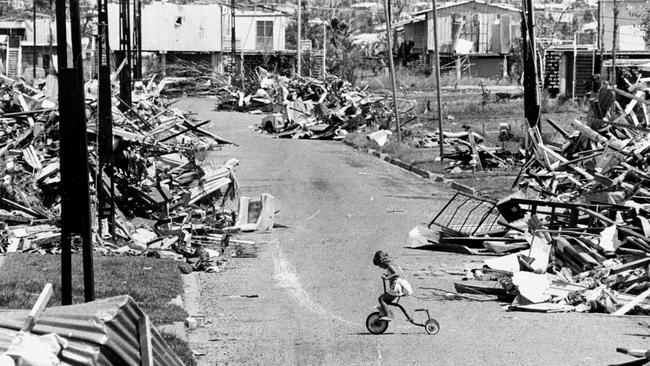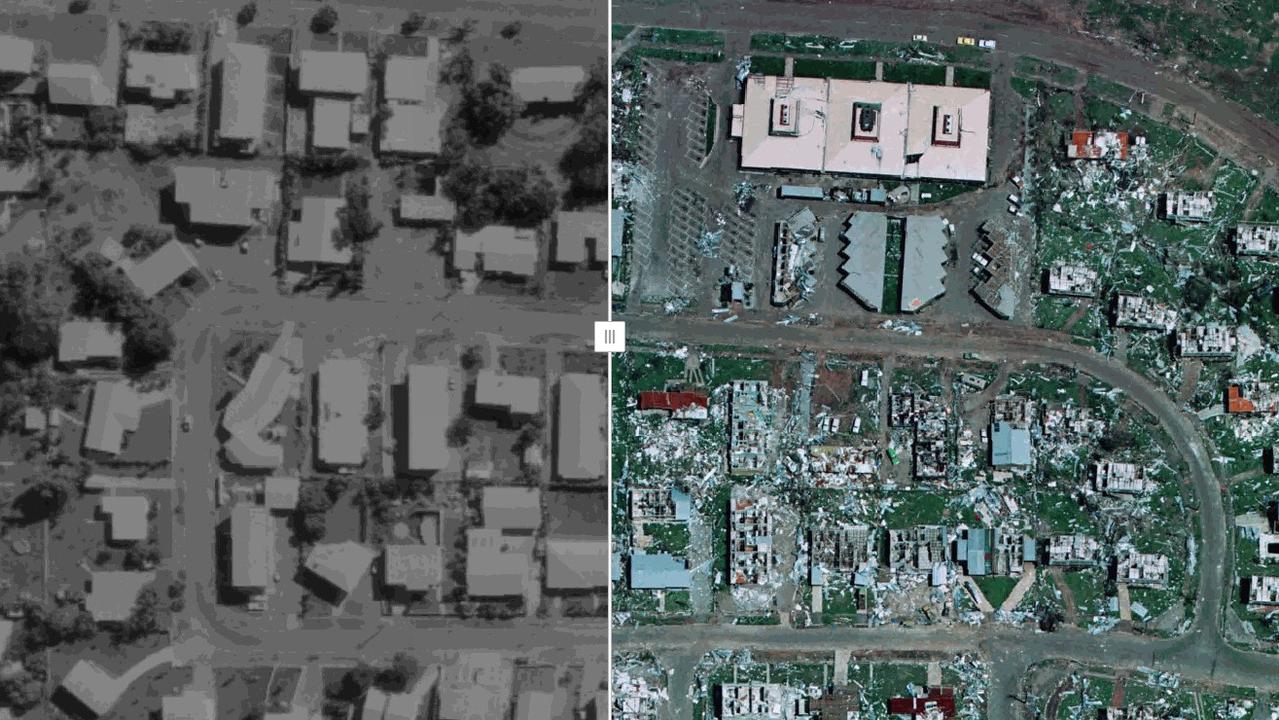Albanese pledged $600k to NT for Cyclone Tracy memorials
It was a tragedy that changed Darwin forever. Fifty years on from Cyclone Tracy, the PM has announced new memorials to honour the trauma, memory and resilience of the city.
Cyclone Tracy
Don't miss out on the headlines from Cyclone Tracy. Followed categories will be added to My News.
Fifty years after Cyclone Tracy devastated Darwin, two new memorials will be built to honour the memory of those who died and those whose lives were irrevocably changed.
Prime Minister Anthony Albanese is set to announce $600,000 will be given to the Northern Territory government to install a kinetic monument at Bundilla Beach, as well as a memorial designed by a local artist at East Point.
Cyclone Tracy hit Darwin in the early hours of Christmas morning in 1974, traumatising the Top End population.
Seventy-one people died, more than 600 were injured, and 80 per cent of the city was destroyed.
The cyclone, which is among the most destructive ever recorded in Australia, also changed the face of Darwin.
More than 36,000 people left the city in the wake of the cyclone, around 70 per cent of houses suffered serious structural failure and the damage bill topped $800 million.
It also led to nationwide reforms for building codes, helping to cyclone-proof homes across Australia.

Mr Albanese said it was fitting that a permanent memorial was established to recognise the impact of “such an overwhelming disaster” on both Darwin and Australia.
“In honouring the people we lost, those who were injured, and those whose lives changed through the lasting trauma, we ensure they will not be forgotten,” he said.
“We also recognise the enormous effort of the people of Darwin in ensuring their city was reconstructed in little more than three years.”
Solomon MP Luke Gosling said that in many ways there were two Darwins – pre and post-Cyclone Tracy.
“The story of our city cannot be told without honouring the lives lost and forever changed, as well as the strength and resilience of a community to rebuild from such devastation,” he said.
Federal Regional Development Minister Catherine King also emphasised the resilience of Darwinites in the wake of the tragedy.
“The city is now a gateway to Asia, and a thriving modern place to live and work,” she said.
“It would not be that way without the work done to rebuild Darwin and the people who stayed or returned to rebuild their community.”





